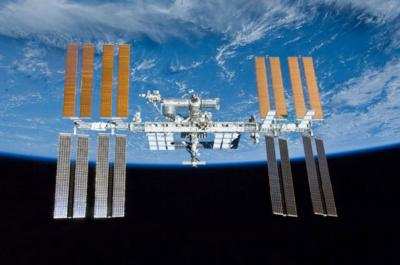Tue, Jul 14, 2015
Operational And Maintenance Issues, International Partnership Among The Topics Discussed
The Subcommittee on Space held a hearing late last week to examine the current status of the International Space Station (ISS) and evaluate NASA' plans for dealing with operational and maintenance challenges. Witnesses at the hearing also discussed the status of the ISS partnership, how NASA is utilizing the ISS to enable future deep space exploration, and the Administration’s request to extend ISS operations to 2024.

“From advances in our understanding of human health and performance to our use of new materials to the utilization of robotics and satellites, the benefits we receive from the ISS are many and diverse," said subcommittee chairman Brian Babin (R-TX) (pictured). In addition to the benefits back on Earth, the ISS offers the conditions necessary to prepare and develop critical technologies for deep space and long-duration human spaceflight missions.
“This Committee has a responsibility to ensure that the American taxpayers are getting all that they can from every dollar they send to the Federal Government. I believe this investment is worthwhile and that the benefits far outweigh the cost. Support for the ISS and its operations and utilization is not a partisan issue, it is an American issue. I look forward to working with my friends on the other side of the aisle and our partners in the space industry to understand how we can all meet the operational challenges facing the ISS program.”
Since 2013, the ISS program has experienced a number of challenges. Astronauts have experienced water leaks in their suits three times, with one incident occurring during a spacewalk. On April 26, 2013, an unmanned Russian Progress cargo vehicle damaged a laser radar reflector when docking with the ISS. On January 14, 2015, a false alarm of an ammonia leak caused the crew to retreat into the Russian segment.

Cargo supply missions have also faced challenges. On October 28, 2014, an Orbital Science’s unmanned cargo launch failed just after launch. On April 28, 2015, a separate Russian Progress cargo vehicle failed to reach the ISS. On June 7, 2015, a planned re-boost of the ISS using a docked Progress vehicle failed but eventually was successful after troubleshooting. On June 10, 2015, a visiting Soyuz vehicle unexpectedly fired its engines without being commanded. Most recently, on June 28, 2015, a SpaceX unmanned cargo launch failed as well.
Members and witnesses noted these challenges at Friday’s hearing and pointed to the program’s effective response as a testament to NASA, ISS partners, and contractors.
More News
We're Everywhere... Thanks To You! Even with the vast resources and incredibly far-reaching scope of the Aero-News Network, every now and then a story that should be reported on sl>[...]
“The Coast Guard anticipates new aircraft procurements may be based off Sikorsky’s MH-60R aircraft, which is the maritime variant of the H-60 in active production. Diff>[...]
Aero Linx: Classic Jet Aircraft Association (CJAA) The CJAA Formation and Safety Team (FAST) Mission is to be the sole authorized provider of formation training and certification f>[...]
During A Low Pass Over A Gravel Bar, The Airplane’S Tailwheel Impacted An Area Of Rough, Uneven Terrain Analysis: The pilot reported that he was flying low-level over various>[...]
Hold For Release Used by ATC to delay an aircraft for traffic management reasons; i.e., weather, traffic volume, etc. Hold for release instructions (including departure delay infor>[...]
 ANN FAQ: How Do I Become A News Spy?
ANN FAQ: How Do I Become A News Spy? Aero-News: Quote of the Day (10.28.25)
Aero-News: Quote of the Day (10.28.25) ANN's Daily Aero-Linx (10.28.25)
ANN's Daily Aero-Linx (10.28.25) NTSB Final Report: Aviat Aircraft Inc A-1B
NTSB Final Report: Aviat Aircraft Inc A-1B ANN's Daily Aero-Term (10.28.25): Hold For Release
ANN's Daily Aero-Term (10.28.25): Hold For Release




